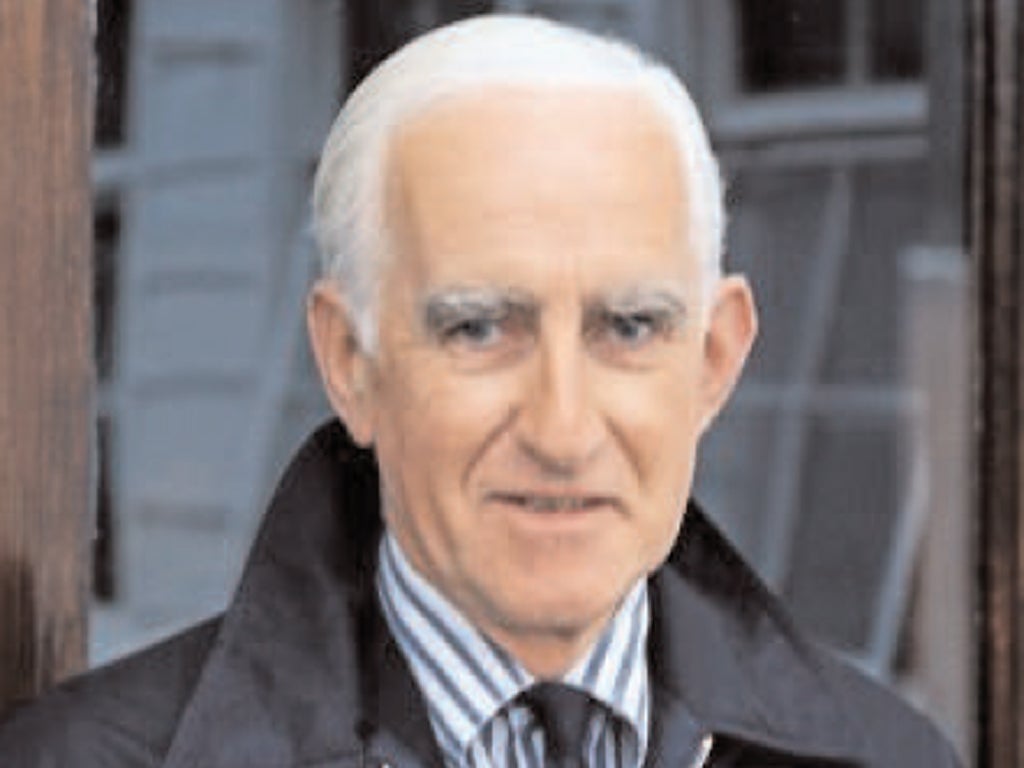Rev Ray Davey: Presbyterian minister who fought to reconcile Catholics and Protestants

The Reverend Ray Davey, who has died aged 97, was a Presbyterian minister who created a Christian community on the north coast of Northern Ireland with the aim of fostering reconciliation between Catholic and Protestant. He did so in 1965, a few years before the Troubles erupted, with a small team dedicated to the gradual improvement of community relations at a time of simmering tensions but little actual violence.
The advent of the Troubles meant a sudden switch from quiet bridge-building to coping with the results of widespread and sustained turmoil and death. It suddenly faced urgent challenges, offering counselling and respite to the many bereaved and mentally scarred.
Davey's inspiration to found the Corrymeela Community came from years as a prisoner of war during the Second World War, which had a profound and lasting impact on him. "I could have allowed my war experience to grind me down completely, or I could decide to make the best of it," he explained. "I chose to make the best of it. After the war the challenge of trying to do something about conflict stayed with me, especially in my own society, which was so polarised."
More than four decades on Corrymeela is still functioning, annually hosting 5,000 people who take part in residential programmes, with a further 1,500 day visitors. It survived many dark days during the Troubles: one of its mottoes was that it was better to light a candle than curse the darkness.
According to the community, those who made their way there spanned "people, schools, churches, youth clubs, carers, victims, prisoners' families, politicians, ex-paramilitaries andcitizens involved in reconciliation."It was said of them that "They listened to different stories and perspectives, shared their experiences, and explored alternative ways of moving out of violence and finding new ways forward together."
Robert Raymond Davey was born in south Belfast, the son of a Presbyterian minister who ordained him into the Presbyterian church. When war broke out he went to North Africa with the YMCA, providing welfare services to troops. His first violent encounter came when a German bomber hit a ship transporting him to Africa. Reaching Tobruk, he worked in canteens and as a driver as well as setting up a religious centre for soldiers of all religions.
When Tobruk fell he was taken prison by the Italians, who held him in camps in Tuscany and elsewhere before handing him over to the Germans. He was then transferred to a camp near Dresden, where he witnessed the ruinous bombing raids of early 1945. He wrote in his war diary: "Dresden was very heavily bombed at midday and at night. It looked as if some supernatural giant had taken up the town and shaken it and then set it on fire. I walked for a very long time without seeing a house fit for habitation. I had never seen such absolute devastation on such a wide scale."
On his return to Belfast he became the first chaplain at Queen's University, which he had himself attended: a useful rugby union player, he had played full-back for an Ulster team which drew with the touring All Blacks. As chaplain from 1946 to 1970 his informal manner connected well with students.
In the 1960s most Protestants, and certainly Unionist leaders, did not regard the Northern Ireland of the time as having deep-rooted problems, even though the system was one of one-party rule to the exclusion of Catholics from power. But Davey felt there was inequality and a lack of justice. He and other liberal clergy discussed the idea of an ecumenical focal point outside the university, and discovered that a holiday fellowship centre on the North Antrim coast was up for sale.
This concentrated minds, he was to recall: "No longer could we indulge in rather abstract discussions on the nature of Christian community. Now we had to face a real choice, and our ideas and visions were put to the test."
Many months of preparation followed, Davey recalling "a noisy and colourful procession of people dressed in their jeans and T-shirts brandishing spades, shovels, picks, paint brushes, kettles, pots and pans."
Household chores were accompanied by a highly idealistic aim – "to create a safe space where individuals from diverse backgrounds can come together to share their story, to listen to each other and to be heard by each other. We dream of a community where we live together regardless of class, religious opinion or political conviction."
Davey was fond of quoting an Italian clergyman who had declared: "Love can never be theoretic." Several years ago the former Irish president Mary McAleese, commending Corrymeela, used language which could serve as Davey's epitaph: "Over many long and frustrating years you gently but insistently offered a vision of a reconciliation that would bring communal peace and partnership. It was not an easy message, for the weight of history was against it and the daily toll of death, injury and destruction kept shattering such fragile trust and hope as there was.
"Painstakingly you helped to turn estranged people towards one another. Many of the seeds of the new and happier relationships now developing across communities on our island were sown in the challenging but welcoming space of Corrymeela."
Davey was predeceased by his wife Kathleen, whom he met at university and married in 1946. He is survived by their three children.
Robert Raymond Davey, Presbyterian minister: born Belfast 10 January 1915; married 1946 Kathleen Burrows (died 2008; three children); died 16 April 2012.
Join our commenting forum
Join thought-provoking conversations, follow other Independent readers and see their replies
Comments
Bookmark popover
Removed from bookmarks